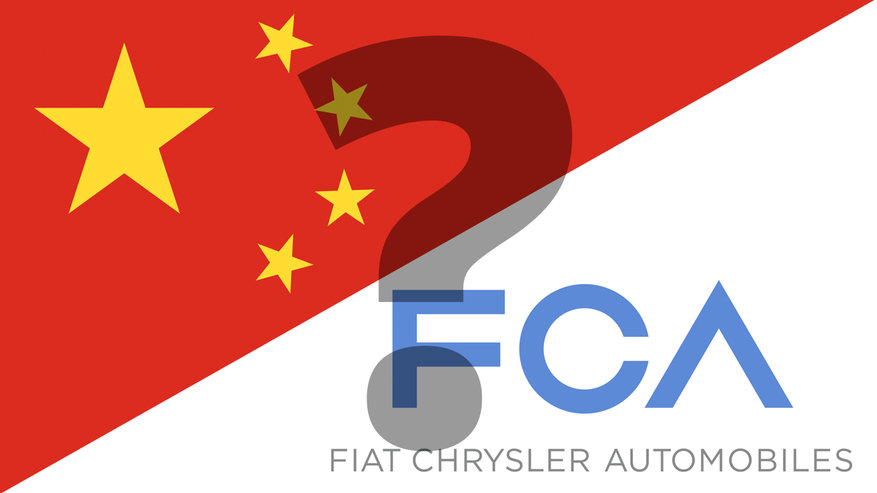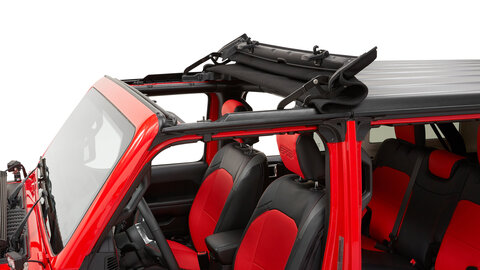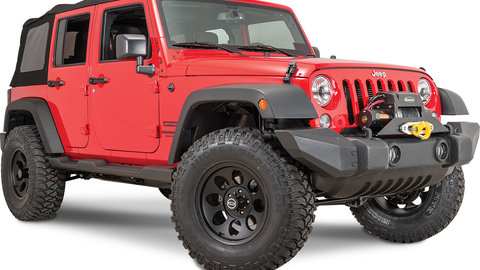It is certainly no secret in the automotive world that Fiat Chrysler Automobiles CEO Sergio Marchionne is on the hunt for someone to buy the company he helms. Or, at the very least, to find a merger partner.
You may recall he tried knocking on the door of GM, but was quickly rebuffed. Then he set sail towards Volkswagen, and while there was a little song and dance between the two, ultimately things did not go anywhere.
Now comes word from Automotive News that an unidentified, but well-known, Chinese automaker has recently made a bid for FCA that was slightly over current market value. While the offer was refused by FCA’s board, it is worth noting that the offer was refused for not being enough money – not just refused outright.
"The Chinese make a lot of sense" as a prospective buyer, said Kristin Dziczek, director of labor, industry and economics at the Center for Automotive Research in Ann Arbor, Mich., to the Detroit Free Press. "Chinese automakers have made no secret that they've got their mark set on the U.S."
Furthering discussion is word that FCA officials have recently made the trek to China to speak with Great Wall Motors, while other Chinese representatives were noticed at FCA’s headquarters in Auburn Hills, Mich.
According to one source who spoke with the Automotive News, any sale likely would involve FCA's highly profitable Jeep and Ram brands, as well as Chrysler, Dodge and Fiat, but would exclude Maserati and Alfa Romeo. Those two brands would be spun off, as was Ferrari, to maximize returns for Exor - the holding company controlled by the Agnelli family, which also owns a controlling interest in FCA.
Earlier this week, different reports named Guangzhou Auto, Dongfeng Motor Corp., Great Wall and Zhejiang Geely Holding Group as potential bidders on FCA. Geely would later deny to Automotive News they were involved in any purchasing talks at this time, so the most natural fit would appear to be Guangzhou. FCA currently produces Jeeps in China at two plants through a joint venture with Guangzhou Auto.
That company also unveiled three vehicles at the North American International Auto Show in January, and one Guangzhou executive told USA TODAY earlier this year they were considering plans to expand ties to Fiat Chrysler in the U.S.
China's automotive market became the largest in the world in terms of annual sales several years ago and the knowledge and capability of its automakers is improving rapidly. Additionally, the Chinese government has a lot of money invested in its automakers and is putting pressure on them to expand globally, including to the United States.
"Right now, Chinese automakers enjoy the full support of the leadership in Beijing to go and make it happen," said Michael Dunne, president of Dunne Automotive, a Hong Kong investment advisory company to the Automotive News. "That's something brand new, and it's really picked up since 2015."
Purchasing an established automaker with a wide range of products and a huge dealer network would do wonders in giving the Chinese a foothold in the U.S. It wouldn’t be the first time either, as Geely already owns Volvo, but that luxury automobile doesn't have nearly as much reach as, say, the Jeep name does. And should FCA sell off to a Chinese corporation, they could follow Geely’s model.
After purchasing Volvo, Geely infused a vast sum of cash back in the company and largely allowed the existing management team to run it, eventually turning around sales back to profitability.
While FCA is in a much stronger position financially than Volvo was, the automaker still lags behind competitors when it comes to hybrid and electric vehicles as well as the development of autonomous technology.
A Chinese buyer flush with cash could result in an acceleration of this kind of product development, making Fiat Chrysler more competitive in the industry – especially as FCA pivots away from cars and into a straight SUV/Truck lineup. It could also lead to job security or more jobs for engineers and, by making the company more competitive, provide job security for workers at U.S. plants.
Globally, FCA has 162 manufacturing operations including assembly, component, stamping and machining plants, as well as another 87 research and development centers. In North America, FCA has a network of about 2,600 dealerships.
However, such a deal would likely face fierce political opposition. President Donald Trump has frequently criticized China for its trade practices, and a sale like this could come under the scrutiny of the U.S. Government's Committee on Foreign Investment in the United States. This committee reviews business deals that could result in control of a U.S. business by a foreign entity that could be viewed as a threat to national security.
"The complications (of this deal) are on the political side,” said Dunne. “What would this mean for a Chinese company to acquire an American automaker, no matter where its corporate headquarters is based?"





















